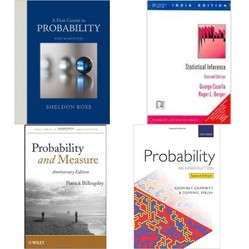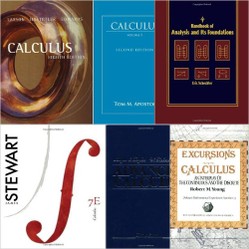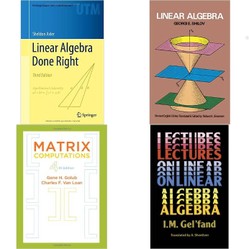Sheldon Ross' A First Course in Probability is a textbook that I have mixed feelings about. On its own, I would not recommend it, but it may be useful as a supplement. If you buy this book, I strongly recommend buying an older edition. With some effort, you can find older editions, used, for under $10. This book has been through 8 editions but there have been few positive improvements since around the 6th.
Pros: Written at a more accessible level, requiring a little less math knowledge than some of the other books reviewed here. Extremely rich examples. I think the examples are the best part of this book, and this alone might make this a book worth buying.
Cons: Completely ignores the fact that the field of statistics exists and does not even mention applications to statistics. Lacks explanatory prose or discussion of the theory. In spite of its introductory level, may require either a good teacher or a supplemental text to fill in some gaps. Newer editions have fattened the book with examples, but have been carried out sloppily, introducing new typos and errors. This book presents the worst example of "edition creep" of a math book that I've ever seen. Note: the book does become more concise in earlier editions, so people wanting more examples may wish to buy 6th edition or later.





















 The Shaming of Femininity and Elevation of Masculinityon 07/13/2017
The Shaming of Femininity and Elevation of Masculinityon 07/13/2017
 What is Genderqueer or Non-Binary Gender?on 10/16/2015
What is Genderqueer or Non-Binary Gender?on 10/16/2015
 Resources for Learning Spanish Free Onlineon 04/13/2016
Resources for Learning Spanish Free Onlineon 04/13/2016
 Ways Native Plants Can Help Control Invasive Plantson 05/26/2016
Ways Native Plants Can Help Control Invasive Plantson 05/26/2016



Questions? Comments? Feedback?